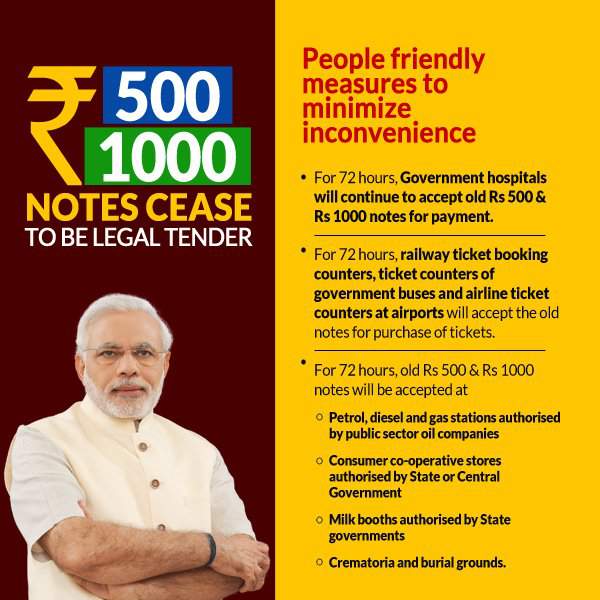Indian Government has taken a lot of key decision including modification in existing guidelines drawn for demonetization of Rs 1000 and Rs 500 notes. The major decision which was taken by the government is to enhance the limit of withdrawal from current account to Rs 50,000 from existing Rs 20,000 per week.
Government stated that “Considering the cash availability, (for) the business entity having current account for past three months, the limit has been increase to Rs 50,000 per week to pay wages and meet sundry expenses”.
Read : How To Exchange Banned Rs 500 & Rs 1000 Currency
This is to remember that only New Current account with past three month operation are allowed depends on previous turn over.
Other major decision which were taken including waiver of transaction charges on Debit and Credit cards :
In order to make transaction through cards cheaper, RBI has asked National Payments Corporation of India to waive its various transaction charges. Similarly, banks have been advised to waive debit and credit card charges.
Use of old defunct Rs 500 and Rs 1,000 notes for paying household utility bills, fuel, taxes and fees and purchases from co-operative stores are extended till November 24. The earlier deadline was November 14 mid-night.
Read : How To Use Rupay Card for Online Payment or Shopping ?
Cap for exchanging the now defunct Rs 500 and Rs 1,000 rupee notes has been increased from Rs 4,000 to Rs 4,500 per day.
The weekly limit of Rs 20,000 for withdrawal from bank counters has been increased to Rs 24,000. The maximum limit of Rs 10,000 per day on such withdrawals has been waived.
Read : How Does New Rs 2000 Currency check Black money Transactions through Banks ?
Also, the last date for submission of the annual life certificate for government pensioners, which is submitted in November every year, has been extended up to January 15, 2017.

